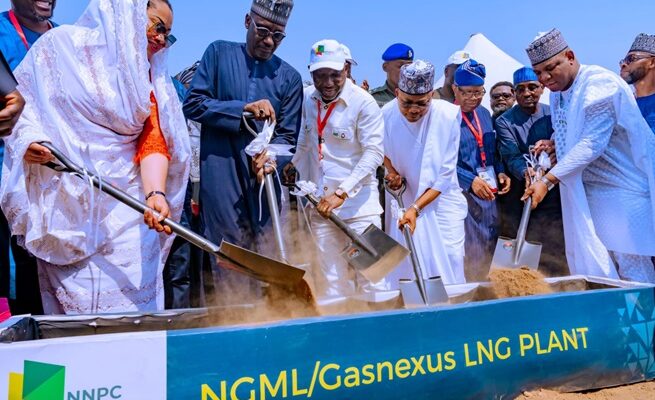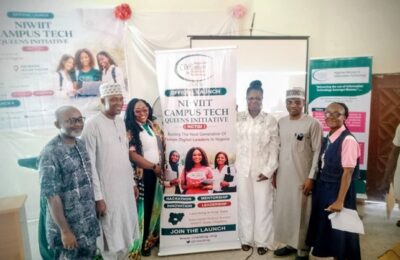The recent ground breaking ceremony of an LNG gas mini station in Ajaokuta, Kogi State, Nigeria has sparked both excitement and controversy in the country. This project, which has the potential to boost economic growth and provide cleaner energy options for the community, has now been overshadowed by political power plays.
It was reported that the GMD of NNPC, who initially led the ceremony, has been replaced by the President and the senator behind the project, Natasha Akpoti, has been transferred to a different position. This has raised questions about the impact of politics on the execution of constituency projects by Nigerian senators.
The news of GMD taking over the role of president at the ceremony was met with mixed reactions. On one hand, it was seen as a show of support and commitment towards the success of the project. However, on the other hand, it raised concerns about the influence of politicians over such crucial infrastructure developments.
Senator Akpoti, who was the driving force behind the project, was also moved from her position as Chairman of Local Contents to Chairperson of Diaspora Affairs. This move has been met with criticism, as many question the rationale behind transferring someone with expertise in local content to a position that may not be directly relevant to the project. This change in role could potentially affect the smooth execution of the project and hinder its progress.
These changes in leadership have highlighted the constant power struggle and political maneuvering in Nigeria. It is no secret that senators have access to constituency funds, which they can allocate for projects in their communities. However, the reality is that these funds are often misused and not utilized for the intended purpose. In some cases, projects are initiated solely for political gain rather than being rooted in the actual needs of the community.
It is concerning that the success of important projects like the LNG gas mini station in Okene may be impacted by political power plays. This not only affects the development of the community but also undermines the trust of the people in their elected representatives. The focus should always be on the greater good and ensuring that projects are executed efficiently and for the benefit of the community, rather than for personal or political gain.
It is time for a change in the way politics operates in Nigeria. Elected officials should prioritize the needs of their constituents and work together for the progress of their communities. The allocation and utilization of constituency funds should be transparent and accountable, with a focus on sustainable development initiatives. The success of projects like the LNG gas mini station in Okene should not be at the mercy of political power plays.
In conclusion, the recent changes in leadership and roles at the LNG gas mini station project in Okene, Kogi State, reveal the impact of political power plays on the execution of constituency projects in Nigeria.
It is time for politicians to prioritize the needs of their communities over their own agendas and work towards the betterment of the country as a whole. Only then can we truly see progress and development in our nation.
– Benjamin Ibrahim, a Retired Permanent Secretary, writes from Lokoja.




